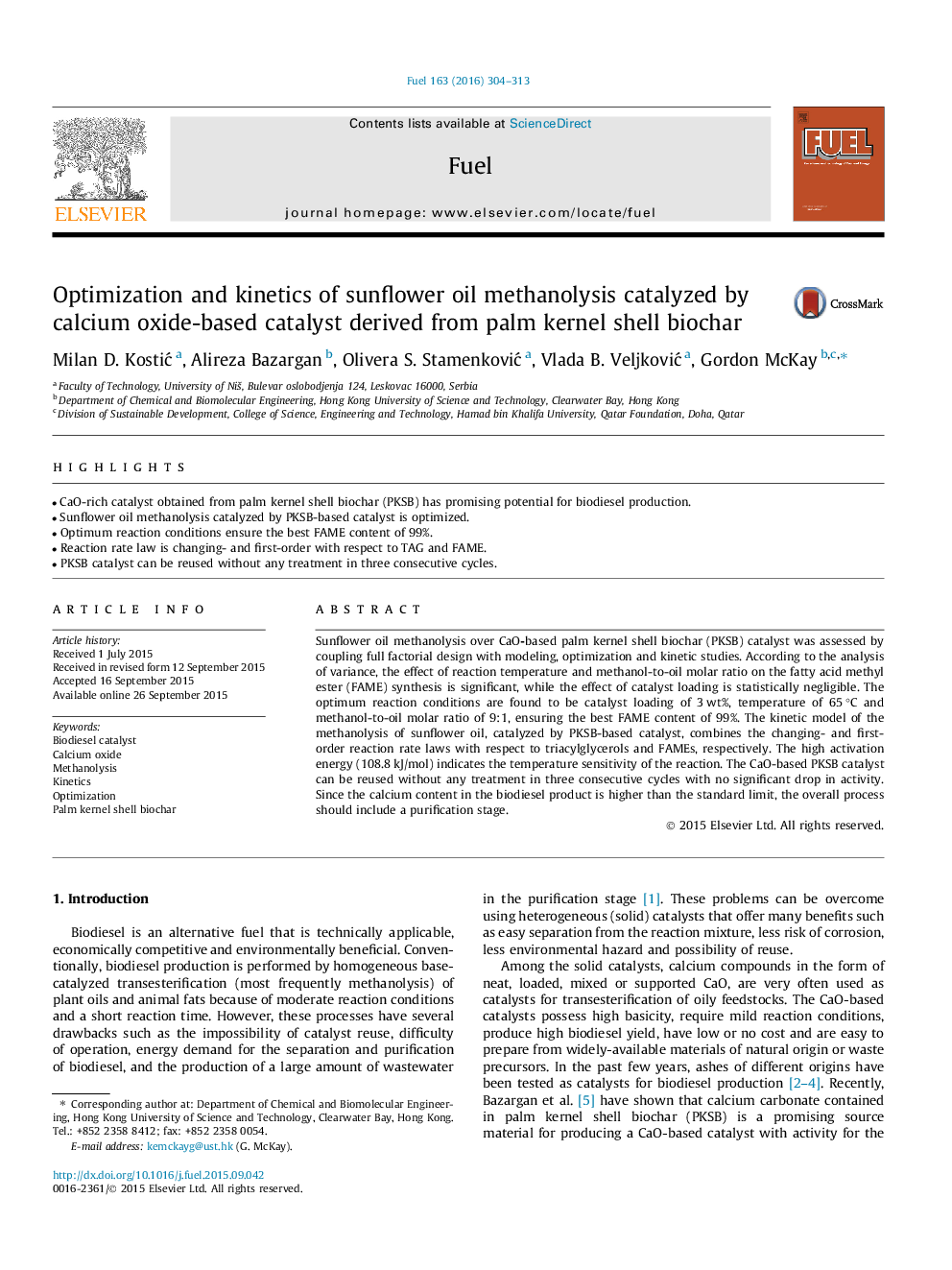| Article ID | Journal | Published Year | Pages | File Type |
|---|---|---|---|---|
| 205514 | Fuel | 2016 | 10 Pages |
•CaO-rich catalyst obtained from palm kernel shell biochar (PKSB) has promising potential for biodiesel production.•Sunflower oil methanolysis catalyzed by PKSB-based catalyst is optimized.•Optimum reaction conditions ensure the best FAME content of 99%.•Reaction rate law is changing- and first-order with respect to TAG and FAME.•PKSB catalyst can be reused without any treatment in three consecutive cycles.
Sunflower oil methanolysis over CaO-based palm kernel shell biochar (PKSB) catalyst was assessed by coupling full factorial design with modeling, optimization and kinetic studies. According to the analysis of variance, the effect of reaction temperature and methanol-to-oil molar ratio on the fatty acid methyl ester (FAME) synthesis is significant, while the effect of catalyst loading is statistically negligible. The optimum reaction conditions are found to be catalyst loading of 3 wt%, temperature of 65 °C and methanol-to-oil molar ratio of 9:1, ensuring the best FAME content of 99%. The kinetic model of the methanolysis of sunflower oil, catalyzed by PKSB-based catalyst, combines the changing- and first-order reaction rate laws with respect to triacylglycerols and FAMEs, respectively. The high activation energy (108.8 kJ/mol) indicates the temperature sensitivity of the reaction. The CaO-based PKSB catalyst can be reused without any treatment in three consecutive cycles with no significant drop in activity. Since the calcium content in the biodiesel product is higher than the standard limit, the overall process should include a purification stage.
